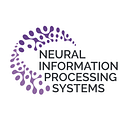Announcing the NeurIPS 2020 Workshop Lineup!
Marzyeh Ghassemi, University of Toronto
Julien Mairal, Inria Grenoble
Stefanie Jegelka, MIT
Sanmi Koyejo, University of Illinois at Urbana-Champaign & Google Research
We’re excited to announce the workshops for NeurIPS 2020! We received 167 total submissions — almost one and a half times more than last year. From this great batch of submissions, we accepted 60 workshops. We wish we could have accepted many more of these high-quality proposals, but could not for technical and organizational reasons. This year is the first time that the workshop selection process had to be so selective. We expect that many of the excellent proposals that we could not accept will be revised, resubmitted, and presented at other ML conferences.
In making our selections, we asked the reviewers to closely follow our guidance document, which was also shared with the proposers. Workshop proposals must be reviewed somewhat differently from academic papers, and we asked the reviewers to consider both scientific merits and broader impacts in their assessments. We recognize that workshop reviews are perhaps more subjective than academic paper reviews. Following the practice of previous years, we will not be releasing the reviews directly to the proposers. However, unlike previous years, we have decided to provide brief feedback to each rejected proposal, highlighting what could be improved, or explaining how the proposal was perceived by the reviewers.
Individual evaluations of proposals by reviewers were important to the decision process, but they were not the only consideration for acceptance. For example, we also strived for a good balance between research areas and between application and theory. Because interest in research areas is not uniform, some areas were more competitive than others. For example, there were many strong healthcare-related proposals. We also received many submissions on important current topics such as reinforcement learning, privacy, fairness, causality, and needless to say various topics on deep learning. We attempted some balance of topic areas to cover both mainstays and emerging topics.
We learned a lot from the co-chairs of the ICML and ICLR workshops about how virtual workshops may be different from in-person workshops and that information informed some of our choices, e.g. (and perhaps most importantly), encouraging the use of a shared technology platform. This decision allows us to tackle technology issues more effectively, pool resources across workshops, and simplify the user experience for workshop attendees.
Next step is your contributions! Most workshops should open up submissions by our suggested submission date of October 2. We typically let each workshop advertise its own call for papers, if they plan to include workshop papers. This year, we are imposing a few deadlines because of the choice to use a common platform for the talks, which appeared to be necessary for hosting 60 events at the same time in a smooth manner. More technical and contextual information is coming soon!
We’re also excited to announce a special symposium on a globally pressing issue. Based on discussions with the board, this year, we are assembling a symposium on COVID-19. We recruited organizers and gave them a broad mandate and organizational freedom to provide an outlet and discussion venue for this worldwide event. The symposium organizers are established members of the NeurIPS community who broadly work in healthcare and/or epidemiology, and have experience organizing workshops. Stay tuned for more information on this event.
Correction: This article was updated on September 8th 2020 to reflect the correct increase in number of submissions. 2020 saw one and a half times the number of applications submitted in 2019, not three times.
